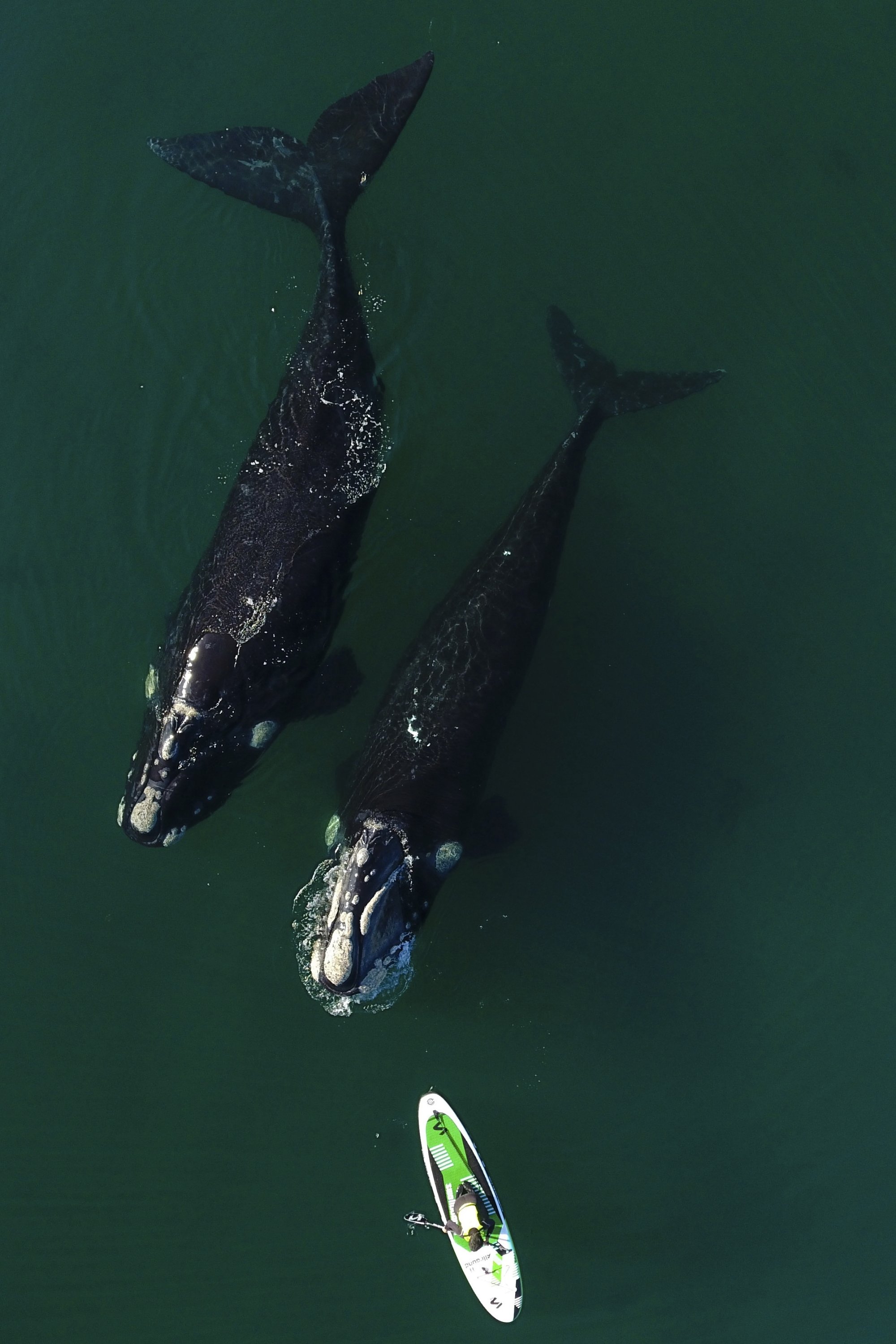Just off the northern coast of Iceland, scientists are collecting information from whales’ breath to find out if they get pressured by whale-seeing boats, an field that has boomed in modern several years.
Scientists from Whale Intelligent, a marine conservation charity, are researching the whales’ strain ranges in their hormones.
From their small sailboat, a drone lifts off. Just after six hours of waiting around, the experts have ultimately noticed a humpback whale.
Hooked up to the flying product are two petri dishes – clear cylindrical containers – that will obtain water droplets from the whale’s spray.
The timeframe to obtain the sample is shorter – the period of a whale’s breath.
This time, the drone flies over the whale cautiously, crossing through the spray coming from the whale’s blowhole… and mission attained. It returns to the sailboat, providing its important cargo to the scientists.
When wrapped in paraffin and frozen, the samples will be sent to a laboratory for examination.
The scientists goal to acquire samples before a whale-viewing boat arrives and then later on, then look at the two samples to decide the immediate affect of that come across on anxiety amounts.
Visitors have been increasingly flocking to the waters of the North Atlantic off Iceland to admire the majestic creatures, although 2020 was a peaceful year thanks to the pandemic.
More than 360,000 whale watchers ended up registered in 2019, 3 periods the selection a decade ago.
Nearly a 3rd of them began their whale seeing tour in the Husavik harbor, heading for the chilly waters of Skjalfandi Bay.

Feeding disruptions
Previous reports on tourism’s impact on whales, which have been dependent on behavioural observations, concluded that tourism brought on only minimal disruptions to the mammals.
The most new examine, from 2011, identified that whale-seeing excursions had been disrupting minke whales in the Faxa Bay around Reykjavik, in the south of the region.
“We located that the minke whales ended up disturbed in their feeding, but it was only a shorter-time period disturbance,” a single of the authors of the study, Marianne Rasmussen, director of the University of Iceland Research Center in Husavik, told Agence France-Presse (AFP).
“It failed to have an effect on their over-all health.”
The approach utilized by Whale Clever this summer time has been employed elsewhere by biologists but this was a very first for scientists in Iceland.
“From the samples, you can search at hormones these kinds of as cortisol, which is a anxiety-relevant hormone, and then you can identify the physiological anxiety degrees of these whales,” stated Tom Grove, Whale Intelligent co-founder and a PhD scholar at the University of Edinburgh.
Considering the fact that 2018, 59 samples have been collected. When a bare minimum of 50 are needed for a proper evaluation, he hopes to collect close to 100.
This summertime, some of the samples had been collected jointly with French environmental team Unu Mondo Expedition, which travelled to Iceland for a month-prolonged expedition to study weather modify problems.
“The whales are critical to us, for our life, mainly because they are element of the ecosystem on our earth,” explained Sophie Simonin, 29, the organization’s co-founder.
“They also absorb huge amounts of carbon dioxide,” she additional.
According to a December 2019 review by the Intercontinental Financial Fund, a massive whale captures an ordinary of 33 tons of carbon dioxide.
Whilst whales are a vacationer attraction, they are also hunted in Iceland.
The Worldwide Whaling Fee banned industrial whaling in 1986, but Iceland, which opposed the moratorium, resumed its hunt in 2003.
Iceland only bans the hunt of blue whales.
But even though the region has recognized an yearly quota of 209 fin whales and 217 minke whales until finally 2023, no whales were hunted this calendar year for the 3rd straight 12 months, as whalers say it is not fiscally practical.

“Esploratore. Appassionato di bacon. Social mediaholic. Introverso. Gamer. Studente esasperatamente umile.”
